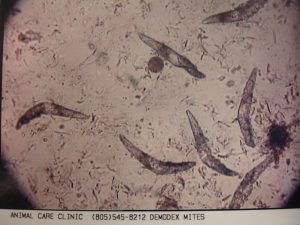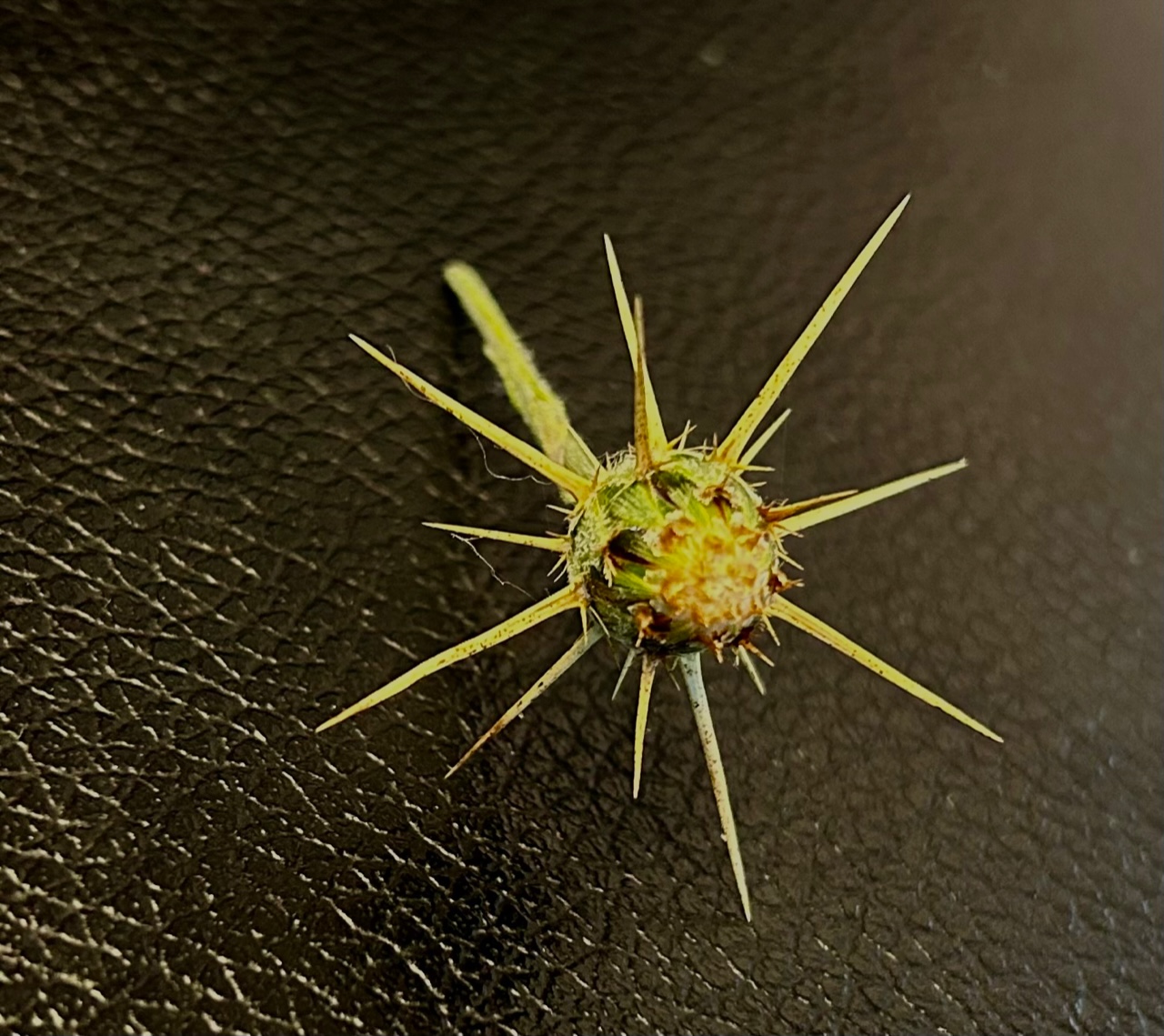Written by Bonnie Markoff, DVM, ABVP
Pamela has asked Animal Care Clinic if there is any treatment for Demodex besides a product called Promeris. The answer is a definite “yes!”
Let’s start by looking at what Demodex is. Demodex mites are microscopic insect-like creatures that normally live on the skin of many dogs and cats. If the immune system is compromised in any way, they can rise in numbers and cause skin inflammation. This is most commonly seen in puppies as focal areas of hair loss and scaling. Sometimes we see lesions all over the body and occasionally adult dogs and cats will have chronic recurring trouble with skin infections due to demodex mites.
Treatment depends on the severity of the problem and the age of the pet. Puppies with only one or two small lesions in a limited area of the body may need no treatment at all. We use antibiotics to treat secondary infections and watch the areas to be sure they regress on their own. Adults, youngsters with many lesions and cases where lesions are not regressing will require specific mite therapy. This can take the form of topical dips or rinses, injectable or oral medications, or one of the topical “flea control” products.
For very localized lesions, particularly in young dogs, I like to use a product called Mitaban, which contains Amitraz. This dip is pretty obnoxious to use on an entire animal, and is toxic to cats, but it is an easy and inexpensive way to gain control of mild, local disease. For more extensive cases, we have classically used a deworming medication called ivermectin. This product can be injected or taken orally. It is usually very effective, but can have side effects. We usually start it at a low dose and slowly raise the dose while looking for any drug intolerance. Collies, Border Collies and similar breeds are more likely to have adverse reactions to the drug. If this product works quickly and is tolerated by your pet, it is usually quite cost effective. Promeris is one of the newer topical flea products and it has been shown to have good efficacy against Demodex. There is no currently agreed upon best method for using this product for Demodex. It is usually applied every 2-4 weeks and may be needed lifelong. Most veterinary dermatologists prefer ivermectin for treating demodex.
The most important thing to know when trying to clear demodex is that every patient will be different. It is absolutely essential to monitor the disease regularly. Skin scrapings should be performed every 1-4 weeks and it is important to count the mites with each scraping. You should hear a live vs. dead mite count each time your dog is seen by your veterinarian. This is what tells us if the treatment is effective and guides us in how long to continue the therapy. Many adult dogs will need therapy for their entire lives to control this disease.
If you have any questions about mites, skin disease or other veterinary issues, call us at Animal Care Clinic. We are open M-F 7:30-6, Saturdays 9-3 and Mondays until 8pm.










Leave A Comment
You must be logged in to post a comment.